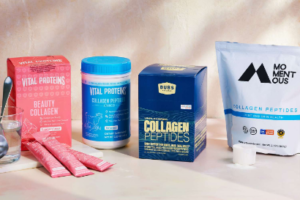Hair health is a priority for many people, whether they’re combating thinning, seeking faster growth, or simply striving for shinier, stronger locks. With the rise of influencers and advertisements promoting high-priced hair supplements, it’s natural to wonder: are these expensive products truly worth the investment? This article dives deep into the world of Expensive Hair Supplements Worth, exploring their ingredients, effectiveness, and whether you should consider adding them to your routine.
The Promise Behind Hair Supplements
Expensive hair supplements often promise impressive results, such as:
- Accelerated hair growth.
- Reduction in hair thinning and breakage.
- Improved overall hair strength and shine.
These claims typically rely on the presence of ingredients like biotin, collagen, vitamins (A, C, D, and E), and minerals (zinc, iron, selenium). But do these ingredients actually deliver?
The Science Behind Hair Supplements

Hair health is influenced by several factors, including genetics, diet, hormonal balance, and external stressors. Supplements aim to fill nutritional gaps, but their effectiveness depends on whether those gaps actually exist. Let’s examine some common ingredients:
1. Biotin

Biotin, also known as vitamin B7, plays a crucial role in the production of keratin the protein that forms hair, skin, and nails. Deficiency in biotin can lead to hair thinning, but such deficiencies are rare in well-nourished individuals. Research indicates that biotin supplementation may only benefit those with a deficiency.
2. Collagen

Collagen is a protein that supports skin elasticity and hair follicle health. While consuming collagen may boost overall protein intake, its direct effects on hair growth are not conclusively proven. Some studies suggest that collagen peptides can improve skin hydration and elasticity, which might indirectly support a healthier scalp.
3. Vitamins and Minerals

Vitamins A, C, D, and E, as well as minerals like zinc and iron, are essential for hair health. For instance:
- Vitamin D deficiency is linked to hair loss.
- Iron deficiency can lead to anemia, a common cause of hair thinning.
- Zinc supports follicle health and sebum production.
However, taking excess vitamins or minerals can cause side effects. For example, too much vitamin A can actually trigger hair loss.
Expensive vs. Affordable Hair Supplements
Premium-priced hair supplements often feature marketing claims, celebrity endorsements, and aesthetically pleasing packaging. While these factors add to their cost, they don’t necessarily enhance their effectiveness. Affordable supplements with similar formulations may provide identical benefits without the hefty price tag.
Key Considerations:
- Ingredient Transparency: Are the active ingredients clearly listed, and are their dosages aligned with scientific recommendations?
- Third-Party Testing: Has the product been tested for purity and efficacy by an independent lab?
- Reputation and Reviews: What do verified users and reputable sources say about the product?
Real-World Results: What Do Studies Say?
While anecdotal evidence supports the efficacy of hair supplements for some individuals, large-scale scientific studies often yield mixed results. Here are a few findings:
- A 2012 study in the Journal of Clinical and Aesthetic Dermatology found that a marine protein supplement improved hair growth in women with thinning hair.
- Biotin supplementation has limited research supporting its impact on hair growth in individuals without a deficiency.
- Multivitamin formulations may enhance hair quality if nutritional deficiencies are present, but they won’t work miracles for genetically thin or damaged hair.
Are Hair Supplements Worth It for You?
- When They Might Be Worth It:
- You have a diagnosed nutrient deficiency (e.g., low iron or vitamin D).
- Your diet lacks variety or essential nutrients.
- Your healthcare provider recommends supplementation for specific hair concerns.
When to Think Twice:
- You’re looking for a quick fix to a deeper issue, such as hormonal imbalance or chronic stress.
- The supplement’s claims seem too good to be true.
- You’re already consuming a balanced diet with sufficient nutrients.
Alternatives to Expensive Supplements
If you’re hesitant to invest in pricey products, consider these alternatives:
- Balanced Diet: Focus on foods rich in hair-friendly nutrients:
- Protein: Eggs, lean meats, beans.
- Omega-3 Fatty Acids: Salmon, walnuts, flaxseeds.
- Iron: Spinach, lentils, red meat.
- Vitamins: Citrus fruits (vitamin C), sweet potatoes (vitamin A), fortified cereals (vitamin D).
- Scalp Care: Maintain a healthy scalp with regular cleansing and moisturizing to support hair follicles.
- Stress Management: Chronic stress can exacerbate hair loss. Techniques like yoga, meditation, and regular exercise can help.
- Consult a Professional: A dermatologist or trichologist can identify the root cause of hair issues and recommend tailored treatments.
Conclusion
While expensive hair supplements may benefit individuals with specific deficiencies or needs, they’re not a one-size-fits-all solution. In many cases, a balanced diet, healthy lifestyle, and proper hair care can deliver comparable results. If you’re considering supplements, consult a healthcare provider to ensure they’re appropriate for you.

